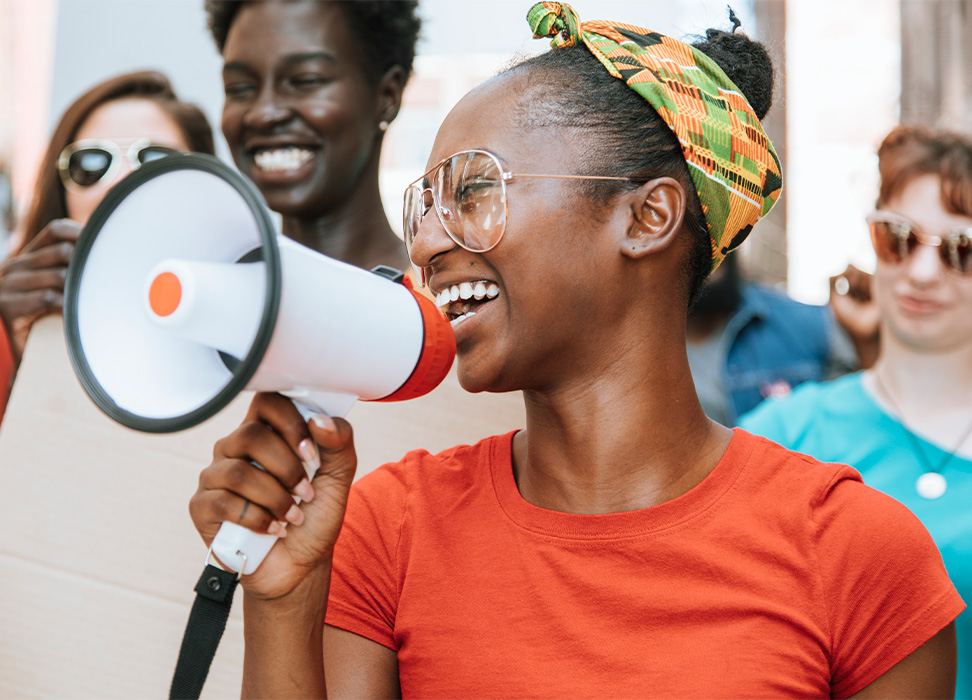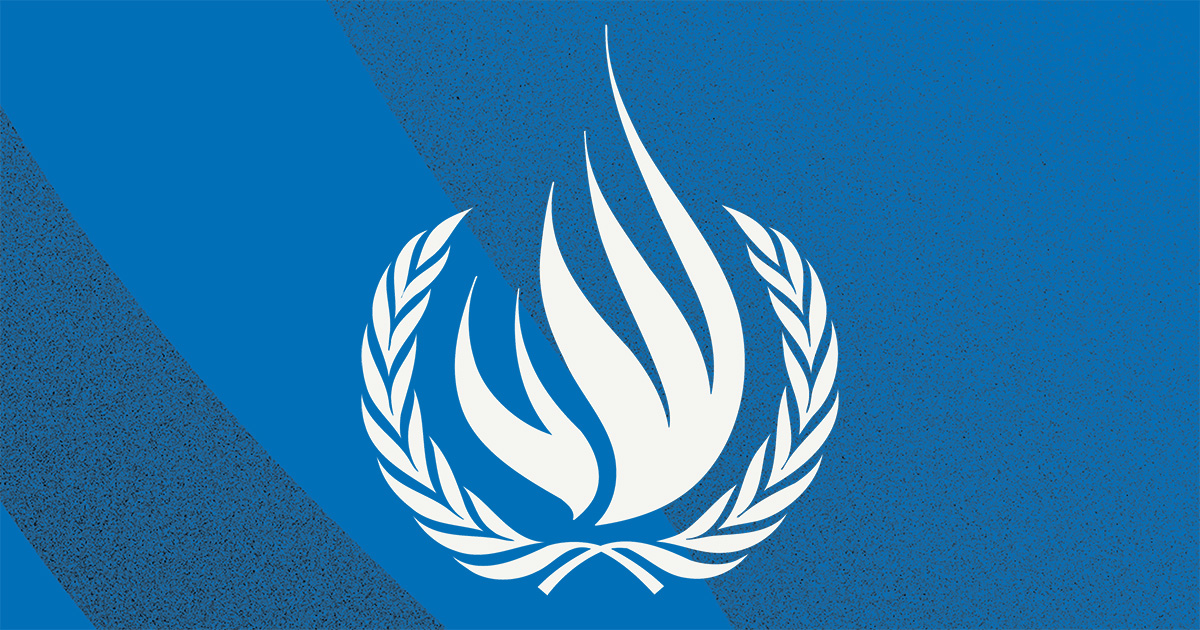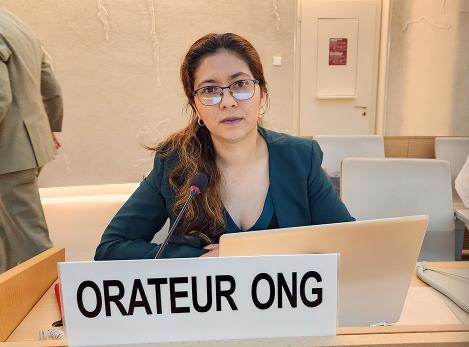
Women’s equal and meaningful participation in decision-making is not only a right in itself, but also represents a necessary condition for women’s human rights to be respected and their interests to shape public decisions.
Globally only 26.5 per cent of parliamentarians are women and in about 22 countries women make up less than 10 per cent of parliamentarians, according to the Inter-Parliamentary Union, a global organization of national parliamentarians.
“Only with the active participation of women in all their diversity and incorporation of women"s lived experiences at all levels of decision-making, the goals of equality, sustainable development and peace will be achieved,” said Hannah Wu, Chief, Women"s Rights and Gender Section, UN Human Rights.
This participation includes all women but is especially pertinent for women with disabilities. According to Women Enabled International (WEI), one in five women around the world have a disability, but far too often they are excluded from participating in decision-making because there is a lack of physical access to a room, or there is no sign language interpretation, or the information materials aren’t in an accessible format. WEI is an international NGO working to advance human rights at the intersection of gender and disability.
While these barriers are different for each person, these barriers stem from issues in organizing and executing meetings and events. Some of these issues include a lack of knowledge about accessibility requirements, lack of funding to invest in accessibility measures, and a disconnect between the organizers and women with disabilities and their representative organizations, according to WEI.
The Inclusive Generation Equality Collective (IGEC), created in 2021 to advance gender equality for all, wants to change this situation. The group of activists with disabilities worldwide advocates for the inclusion of all women with disabilities. It is working on removing these roadblocks with the introduction of the Feminist Accessibility Protocol, a ground-breaking set of commitments that seek to ensure the inclusion of women with disabilities in gender equality spaces.
The Protocol calls for countries, civil society organizations, and the United Nations to make a pledge to ensure that gender equality discussions and decision-making spaces are fully accessible to and inclusive of women, girls, trans, intersex and nonbinary persons with disabilities. The Protocol includes 13 pledges where each one is a call to action on a specific aspect of accessibility and inclusion in events and meetings, including event planning, execution, and follow-up.
“
Women and girls from historically marginalized groups must be supported to participate in all levels of decisions-making in public and political life.
“
HANNAH WU, CHIEF, WOMEN"S RIGHTS AND GENDER SECTION, UN HUMAN RIGHTS
Article 9 of the Convention on the Rights of Persons with Disabilities states that accessibility is a precondition for persons with disabilities to live independently, participate fully and equally in society. This means that for people with disabilities, the right to access the physical environment, transportation, information, and technologies and spaces open to the public is a prerequisite to fulfilling many other rights, including the right to participation in public life, according to Wu.
“Recognizing this, we encourage our colleagues and partners to use the Feminist Accessibility Protocol to ensure that women and girls with disabilities can access both in person and virtual spaces, where important decisions on women’s rights and gender equality take place,” Wu said.
To advance on women’s and girls’ participation in public life, the Office calls for concrete actions in a range of interrelated areas, including strengthening the national legal framework to ensure gender equality in the public and private sectors.
“Women’s human rights are interdependent and indivisible,” she said.“We cannot promote women’s equal participation in public and political life alone, if we do not secure women’s right to equality in all aspects of family life, freedom from gender-based violence, sexual and reproductive health and rights, and opportunities for economic empowerment.”
Universal access
The Protocol and this push to make all spaces accessibility to women with disabilities is deeply personal for Cristina Dueñas. Dueñas, from Spain, is a mechanical engineer and a disability rights and gender activist.
Dueñas had an unsuccessful back surgery, which resulted in a leg that makes it difficult for her to walk without crutches.
“Since I wasn’t born with it, it has changed my life pretty deeply and how I look at life,” she said.
After her surgery she decided to become a specialist in universal accessibility in the urban environment and buildings.
“Universal accessibility is not only beneficial for people with disabilities, but for everybody,” she said. “Because without accessibility, we as women with disabilities can’t participate in feminist spaces and, in the end, we won’t have the gender equality that we wish for.”
Dueñas was part of the team at IGEC that developed the Protocol. She said the origins of the idea came when her and her IGEC colleagues attended the Gender Equality Forum in July 2021, where they realized there were many barriers due to lack of accessibility for them to participate in the discussions.
“This led to us not being able to participate fully and not being able to see what happened in this important event because many of us couldn’t access the events,” she said. “It was clear we needed to be there in all the events and the meetings and that’s where the Protocol on accessibility was born.”
IGEC member Shiela May Inmenzo Aggarao, was also part of the Protocol development team. She acquired her visually impairment at 15-years-old when glaucoma left her with low vision. She is now the Secretary of Nationwide Organization of Visually-Impaired Empowered Ladies, a group of women with visual impairments working on the intersection of gender and disability in the Philippines.
“A lot of people and organizations don’t know what accessibility is and how to implement it, so the Protocol is a great tool that anyone can use in a practical way,” she said.
Aggarao said that there are many roadblocks for women with disabilities and their opportunity to participate and lead.
“There is still an attitude towards women and girls with disabilities that we can’t take on leadership roles, we should stay home, and our families and the community can be overprotective,” she said.
However, Aggarao pointed out that women with disabilities just don’t want to talk about accessibility, but to talk about gender equality with a disability perspective.
“We want to talk about the issues that other women and people want to talk about,” she said. “We want to talk about accessibility, but if the topic is gender, let’s talk about gender. We want to have that voice and have that space that all women are entitled to for us to do so.”











